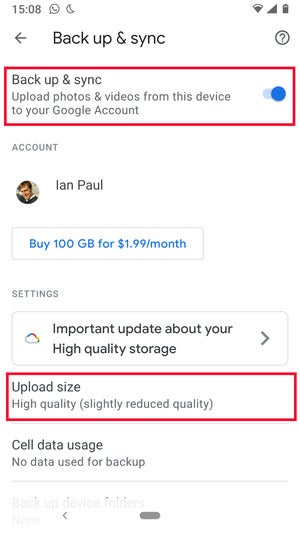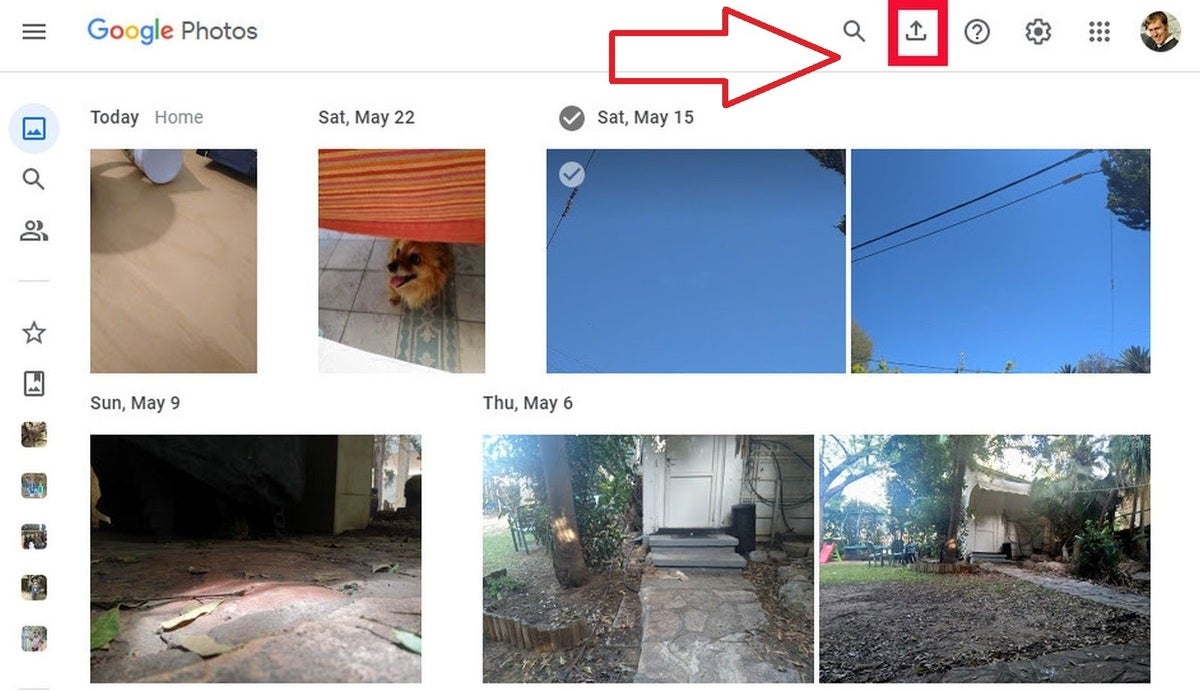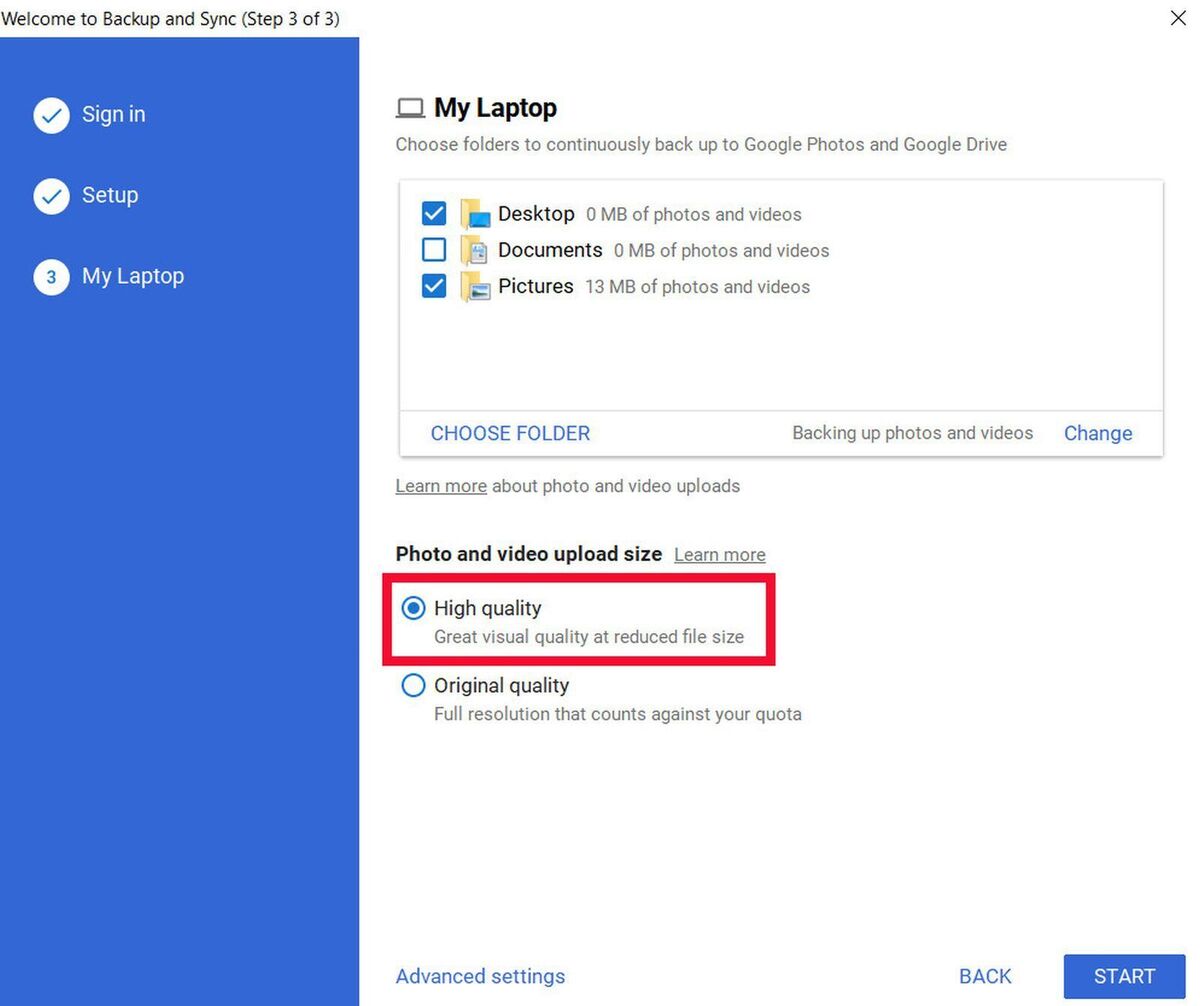It’s almost here. On Tuesday, June 1—the day after Memorial Day—all your new Google Photos uploads will count against Google’s Data Cap. That excludes Pixel owners, but the rest of us only have a few days left. As we mentioned earlier, if you have photos that you’d like to add to Google Photos without it counting against the storage limit, now is the time to act.
Why would you want to do this? Because you get a free backup of your photos in print quality (assuming they were in the first place), and having all your pictures stashed in Google’s cloud makes it easier to share photos with others.
Here’s how to upload all your pictures to Google Photos before the new data cap hits.
Upload from your Android phone
 IDG
IDG
Back up & sync options in Google Photos.
Many people have this enabled already, but in case you haven’t, the easiest way to get any pictures off your phone is to enable Backup & Sync.
Start by opening Google Photos on your phone, and then tap your profile icon in the upper right corner.
Next, select Settings > Back up & sync, then and make sure that the slider for Back up & sync is enabled as pictured here.
Next, look at the section on the same screen entitled Upload size and make sure it says High quality (slightly reduced quality). If it does you’re good to go.
If it doesn’t, tap the menu item, and then select High quality from the options on the next screen. That’s it!
Upload from a PC
If you have a bunch of photos that you want to upload to Google Photos from your PC, doing so is also a fairly easy process. First, open your browser of choice and head to Google Photos on the web at photos.google.com. If you’re not signed in to your account then you’ll need to do so.
Now, it’s just a simple case of clicking the upload icon (the upward facing arrow above a horizontal bracket) in the upper right corner of the Google Photos web app. Then select Computer from the menu that appears.
 Ian Paul/IDG
Ian Paul/IDGThe problem here is that you can only upload photos from a single folder at a time. If you only have one folder’s worth of images that’s easy enough. If you have multiple folders with hundreds of photos it’ll be a serious pain, but fear not—we have a remedy for that in the next section.
To continue with a simple one folder solution, select the folder you want to upload images from, then hold down CTRL on your keyboard while selecting all the photos you want to move to Google’s servers. (If you want all of the photos, you can just press CTRL + A to select everything in the folder.) Now click Open.
Next, Google will ask if you want to store them in Original or High quality. Select the latter, since High quality images don’t count against your Google storage cap (until June 1). Press Continue.
After the photos are uploaded you can add them to an album or just leave them as loose photos in your collection. You may also need to check the metadata for each photo you’ve just upload to make sure that details such as the date are correct. That way, they will be collected together if you ever search by year. You can also add a location to your images for similar search capabilities. One thing you can’t do, however, is change the file name once it’s uploaded.
If you only have a few photos that you want to add you can also just drag and drop them right into the web app.
Backup & sync
For major upload jobs with hundreds of photos, you’ll need Google’s Backup & sync desktop utility. Once it’s installed, open the app, click Get started, and sign in to your Google account.
Now select Back up photos and videos and select Next. Then you’ll get to the crucial page where you can select folders to upload. By default, Google Photos wants to upload your entire pictures folder, and note that the High quality option is selected by default.
 Ian Paul/IDG
Ian Paul/IDG
Be sure to pick High quality to stay under the cap.
If that suits you then just click Start and you’re off to the races. Otherwise, click Choose Folder in that top box to select more locations for your photos. You can only select one folder at a time, but they will all get uploaded once you’re done.
After that, Google’s Backup and Sync service will upload all your selected photos in High quality. How long it takes depends on the number of photos you have and the speed of your Internet connection, of course. If you’re uploading a lot of pictures to squeeze them in before Google’s data cap hits, it’s probably a good idea to let your PC run overnight. Once the upload is done, however, you can keep these photos in Google’s cloud without impacting your storage cap that comes into effect on June 1.
